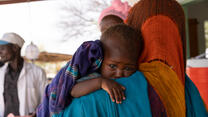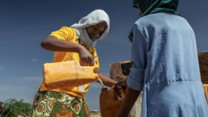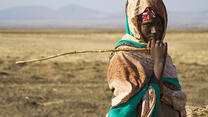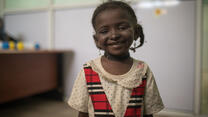Chad is one of the least-developed countries in the world, scoring close to the bottom of nearly every indicator of economic prosperity and general well-being. These development challenges have been further compounded by a long-running crisis in the Lake Chad area, driven by the activities of Boko Haram in northern Nigeria, Cameroon, and Niger.
In Chad, access to healthcare services is inadequate and the few clinics available are often poorly stocked with under-qualified staff. Few people are protected against preventable diseases due to low vaccination rates and many are in poor health due to a lack of nutritious food.
Girls often get pregnant at a young age, and most children are born outside of healthcare facilities. Therefore, complications during childbirth often go untreated, and can result in maternal mortality. People also struggle to meet their basic needs. Farms are threatened by unpredictable rains that lead to annual food shortages. As a result, families sell their belongings, stop sending children to school, or avoid seeing a doctor to save money to buy food. Furthermore, women are often excluded from decision-making in the home and community, often regarding health care, education, or drinking water issues.
The International Rescue Committee’s new strategy for Chad illustrates its commitment to improving the health, economic wellbeing, and decision-making power of crisis-affected people in Chad.



